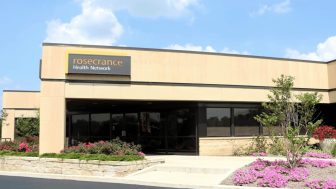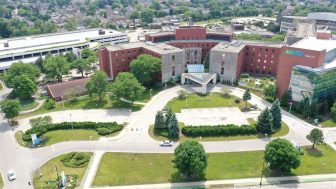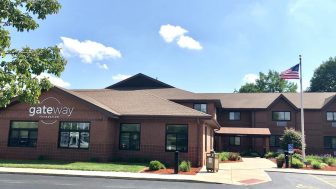Banyan Treatment Centers – Gilman
1237 E 1600 North Rd
Springfield, IL 60938
Springfield, Illinois
779-242-2468
Get Help Now - 312-248-2519
 Who Answers?
Who Answers?

Addiction Treatment Programs
Alcoholism
Drug Rehab
Alcoholism
Each alcohol rehab in Illinois is unique, but most include three basic aspects of treatment: medical detox, psychotherapy, and medication. Through these methods, participants receive treatment for the physical, mental, and emotional aspects of alcohol use disorder.Drug Rehab
Drug rehab in Illinois is designed to help men and women recover from drug addiction. The length of the program and its intensity vary, based on the individual’s needs. It’s important to find the right program to suit your unique situation and challenges.Levels of Care
1
Detox & MAT
The first step toward a drug-free future is typically detox. This initial phase of drug rehab in Illinois can ...last up to a week. During this time, addictive substances are slowly and safely cleansed from your body.Read More
2
Inpatient Rehab
Inpatient rehab in Illinois features intensive clinical supervision and a highly structured and supportive env...ironment, meaning this level of care is especially well suited for clients just beginning their recovery journey and those at risk of relapse.Read More
3
Outpatient Rehab
Outpatient rehab in Illinois may be brief or long-term, depending on the individual. During this time, you wil...l maintain membership in a support group as well as attend one-on-one counseling sessions. The focus is ongoing development of life skills that will prevent relapse.Read More
Insurance
 Private Insurance
Private Insurance
For those who have priviate insurance coverage, the cost of alcohol and drug rehab in Illinois can be greatly ...reduced or completely eliminated. But keep in mind, coverage rates vary by specific plan, so be sure to confirm your plan details with your provider.Read More
 Self-Pay Options
Self-Pay Options
Self-pay options, also known as private pay, are common when paying for drug rehab in Illinois. As the name su...ggests, you are paying for treatment out-of-pocket. Examples of private pay include paying in cash, writing a check, taking out a personal or medical loan, credit card payments, and more.Read More
Contact Banyan Treatment Centers – Gilman

Location Details
Other Nearby Facilities

Rosecrance Health Network
1021 North Mulford Road
Rockford, IL 61107

Amita Health Resurrection Medical Center Chicago
7435 West Talcott Avenue
Chicago, IL 60631

Gateway Foundation Springfield Drug Addiction Treatment Center
2200 Lake Victoria Drive
Springfield, IL 62703

SunCloud Health Naperville Treatment Center
280 Shuman Boulevard Suite 190
Naperville, IL 60563